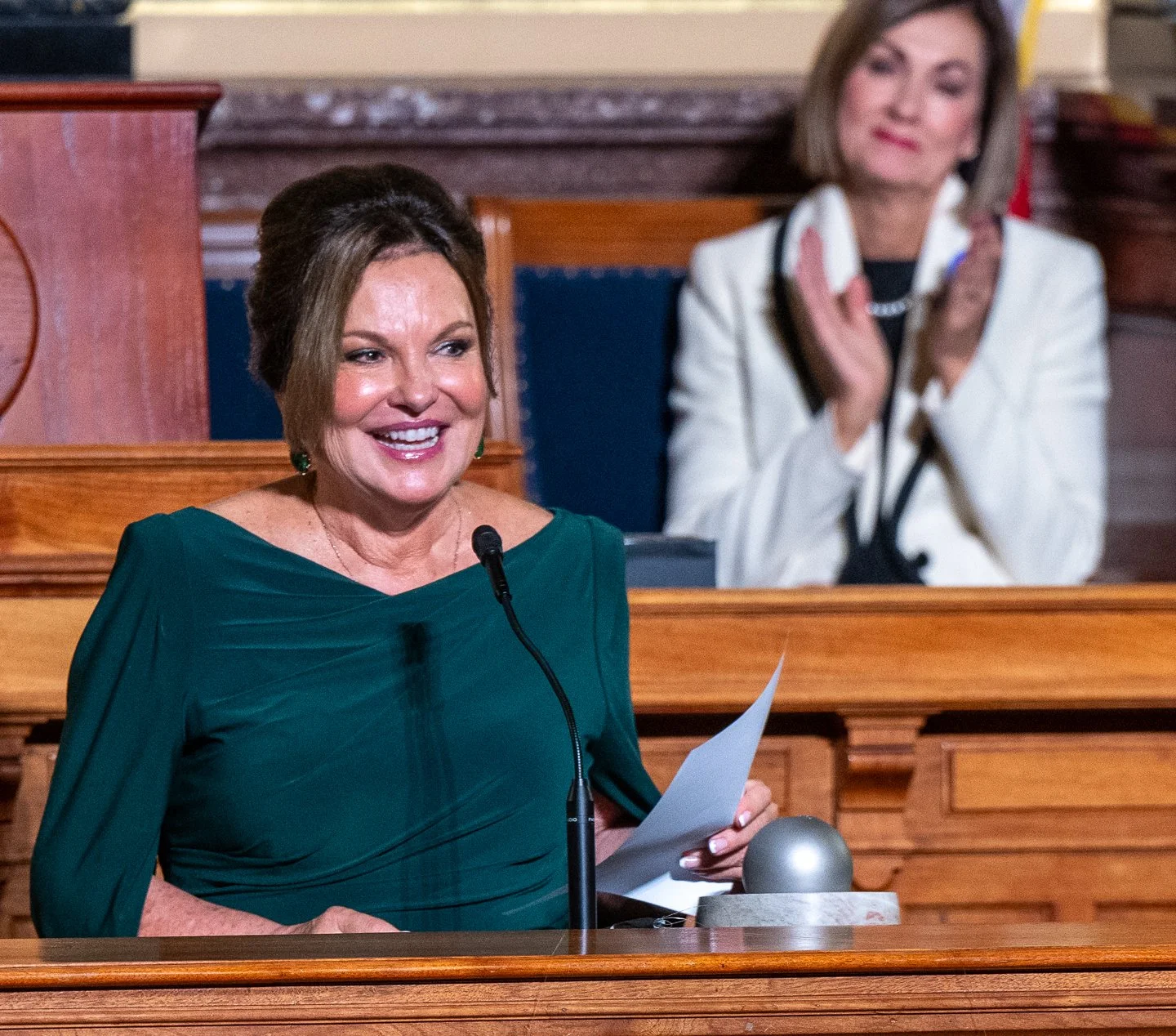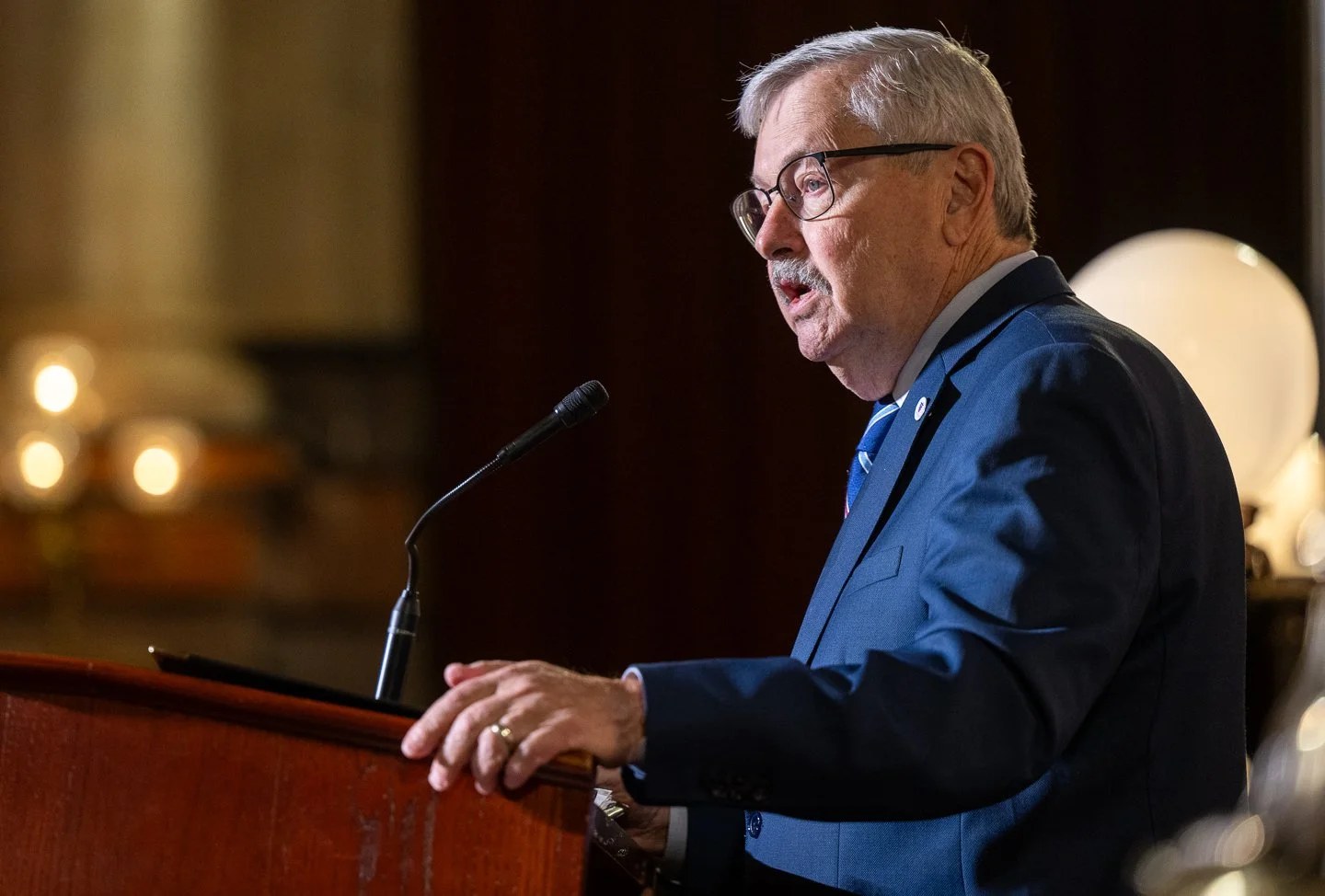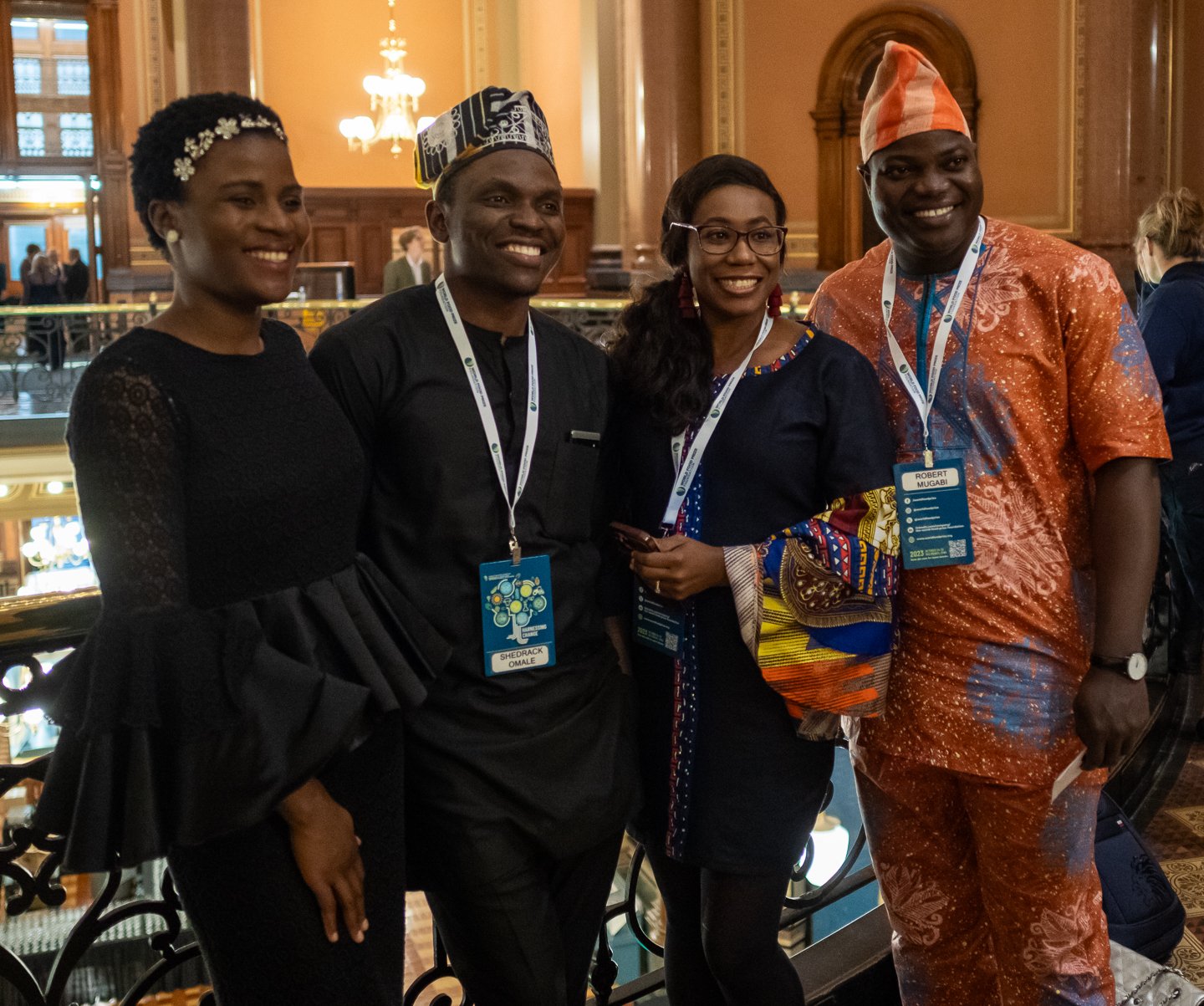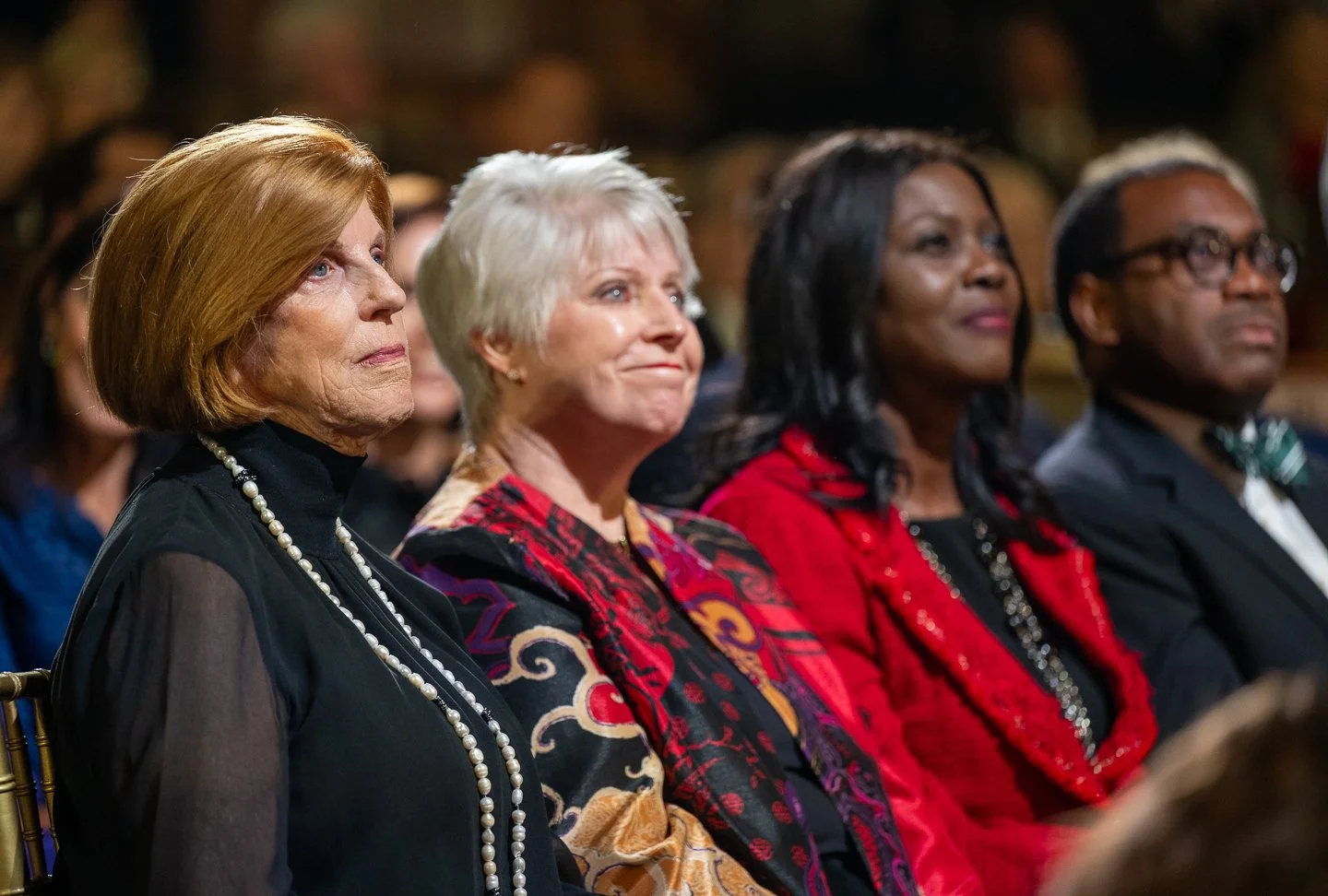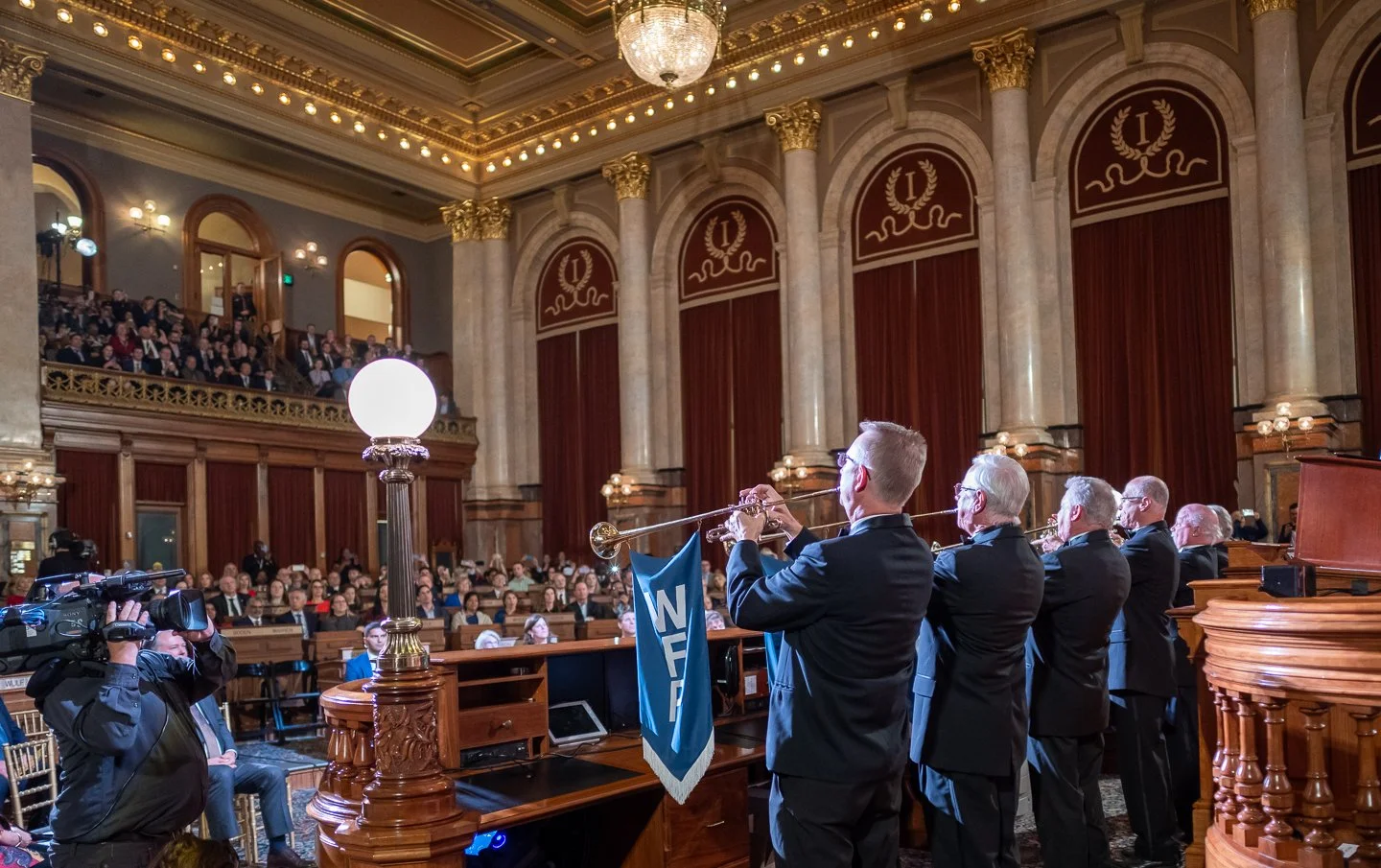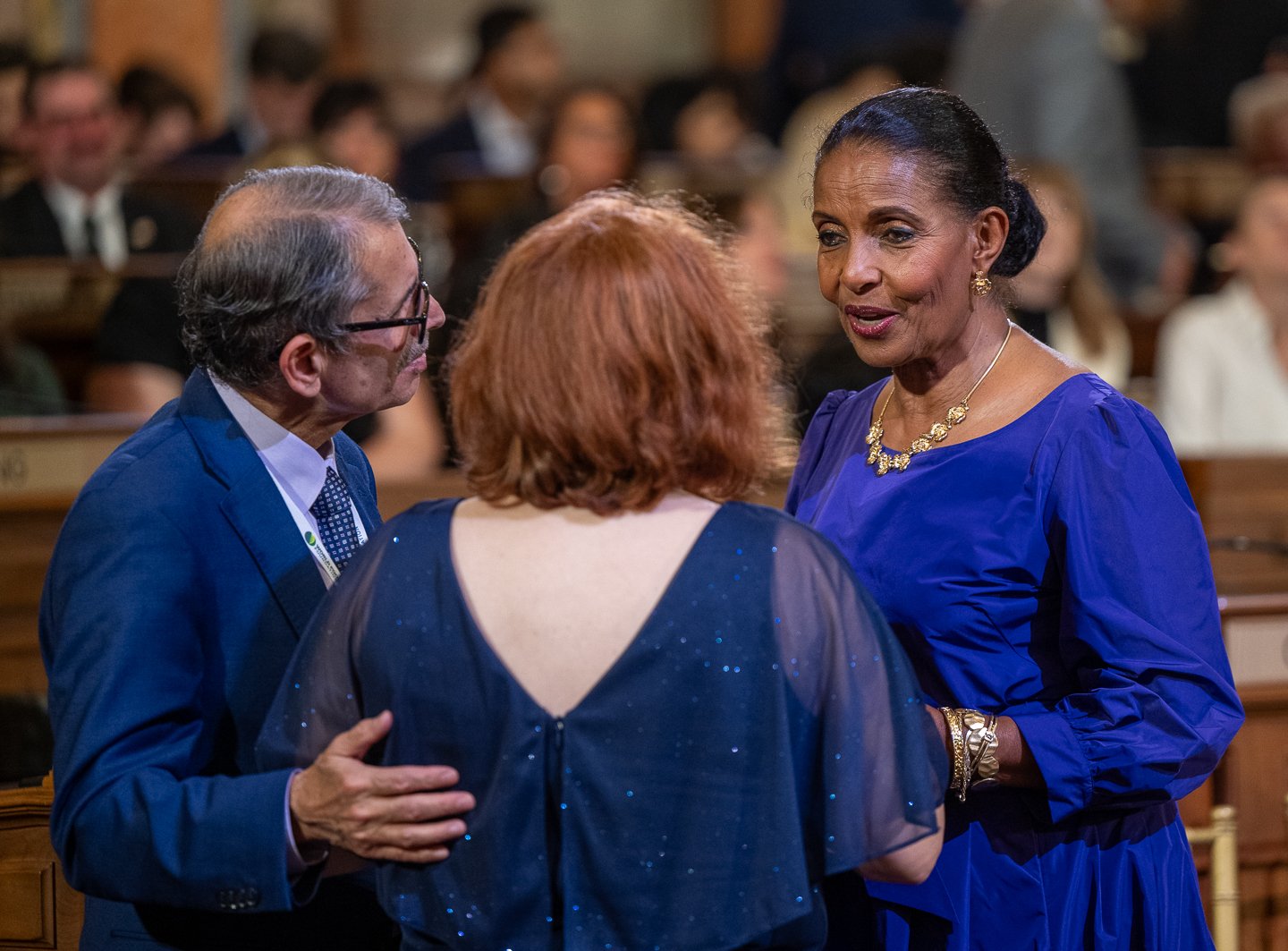Turning Landmines into Vineyards
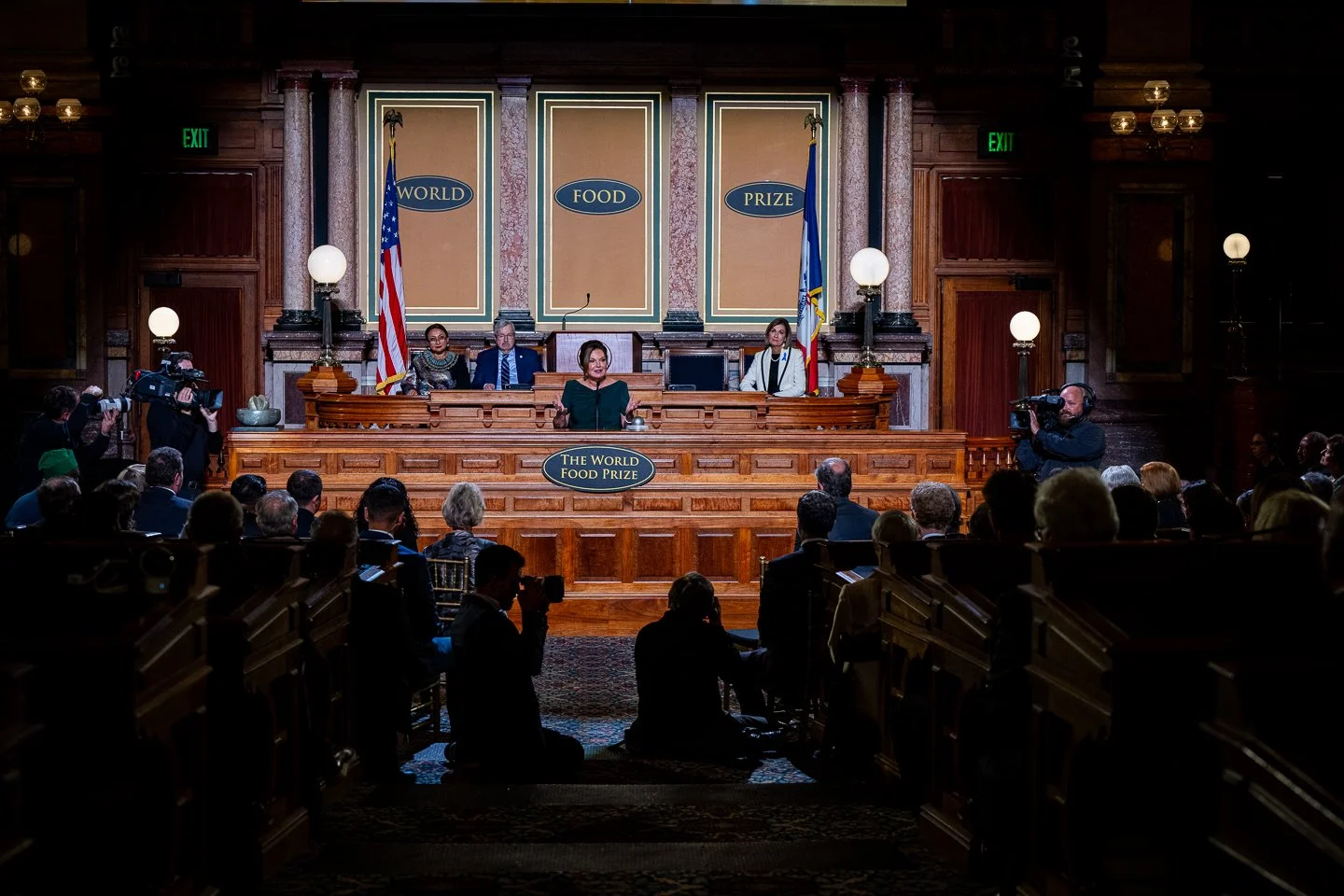
Heidi Kühn accepts the World Food Prize award during the Laureate Ceremony at the Iowa State Capitol last night. (Photo: Joseph L. Murphy)
Heidi Kühn's pursuit of tranquility in war-torn regions is more than a casual commitment; it is a deeply embedded belief engraved in her soul. This passion has propelled her to reshape war-ravaged landscapes into self-sustaining farmlands. The 2023 World Food Prize laureate has been instrumental in steering the narrative of landmine-infested areas from a grim landscape to prosperity.
She embarked on her journey in the late 1990s, founding Roots of Peace, a humanitarian organization with a mission focused on the enriching legacy of soil. Her vision was simple yet potent. She sought to cultivate peace from the ground up, weaving together the threads of agriculture, community, and economic growth.
Kühn’s work has supported demining partners in Afghanistan, Angola, Azerbaijan, Cambodia, Croatia, Israel, Iraq, Palestinian areas, and Vietnam, allowing local farmers safe access to irrigation canals and arable land. Most recently, Roots of Peace has partnered with the Rotary Club of Ukraine to begin work in the country, where the UN estimates around 30 percent of the country could be mined as a result of the ongoing conflict.
Heidi Kühn shares a laugh with the crowd while accepting the World Food Prize award. (Photo: Joseph L. Murphy)
From Minefields to Vineyards
The best example of Kühn's work is seen in the vineyards of Afghanistan, once a perilous mesh of deadly landmines. Heidi and her team undertook the gargantuan task of demining this region. What was once a no man's land now stands tall as a testament to the human spirit, with vineyards and bountiful harvests replacing the scars of the past.
The transformation is not just about the landscape. It's about lives too. Heidi's efforts have incubated a network of local grape farmers and winemakers, facilitating a significant reduction in poppy cultivation once rampant in Afghanistan —crucially curbing the illicit drug trade while fortifying local economies.
But reclamation is only one part of the equation. Kühn recognizes that a sustainable solution requires a holistic approach that embraces both education and community building. This understanding is at the heart of Roots of Peace's mission - to not only remove the physical remnants of conflict but to nurture the emergence of robust agricultural communities. They do this through a process of teaching, sharing, and supporting, aimed at maintaining the health of the soil and the prosperity of the community in the long term.
“Heidi Khün embodies the commitment of Dr. Norman Borlaug, who founded the World Food Prize, to cultivate peace through agriculture,” Ambassador Terry Branstad said. “I am honored to announce her as the 2023 Laureate for her work to provide a way forward for more than a million people living in war-torn regions around the world. Roots of Peace provides a model of how to overcome threats and challenges that can impede regions for years after conflict.”
Around 60 million people in almost 70 countries and territories continue to live at risk of landmines, according to the United Nations, including rural communities where farming is the main source of livelihood and income.
Whether she's working in Croatia, Vietnam, or Afghanistan, Heidi Kühn's remarkable legacy goes beyond her tangible achievements on the ground. Her ideas of peace, rehabilitation, and sustainable growth continue to inspire individuals and communities globally, earning her well-deserved recognition as the 2023 World Food Prize laureate.
Ambassador Terry Brandstad speaks during the World Food Prize Laureate Award Ceremony last night. (Photo: Joseph L. Murphy)
“It is with immense gratitude and a sense of responsibility that I humbly accept the World Food Prize this year on behalf of Roots of Peace and the farming families of war-torn countries across the world,” said Kühn.
The World Food Prize
The World Food Prize is often likened to the Nobel Prize for Agriculture, Every year, it recognizes the efforts of extraordinary individuals who have made groundbreaking strides in combating global hunger and poverty.
This year over 1,300 people from 70 countries attended the three-day event. The World Food Prize is an international award that recognizes individuals who have made significant contributions to improving the quality, quantity, and availability of food around the world. It was established in 1986 by Nobel Peace Prize laureate Norman Borlaug, who believed that food security is crucial for achieving global peace and stability. The prize aims to honor those who have dedicated their efforts to combating hunger, promoting sustainable agriculture, and finding innovative solutions to food-related challenges.
The World Food Prize helps raise public awareness about the interconnectedness of food, agriculture, and various global issues such as poverty, climate change, and conflict. It emphasizes the role of agriculture in promoting economic development, reducing inequality, and building resilient communities. By celebrating the achievements of laureates, the prize inspires individuals and organizations to take action and contribute to a more sustainable and food-secure world.
For more than two decades, Joseph L. Murphy has had the pleasure of meeting and connecting with people from all walks of life through photography. He has photographed presidents and heads of state, traversed the winding alleyways of the Fes Medina in Morocco, photographed the sprawling countryside and people that make up Argentina and covered events that have defined the U.S. Most recently, Murphy’s travels have taken him to Cambodia, Mexico, China, Vietnam and Ecuador.
He has spent the past 20 years specializing in agriculture photography for multiple organizations, publications and marketing projects.
A graduate of the University of Iowa, Murphy determined at an early age that his love of photography would shape his vision for life.

